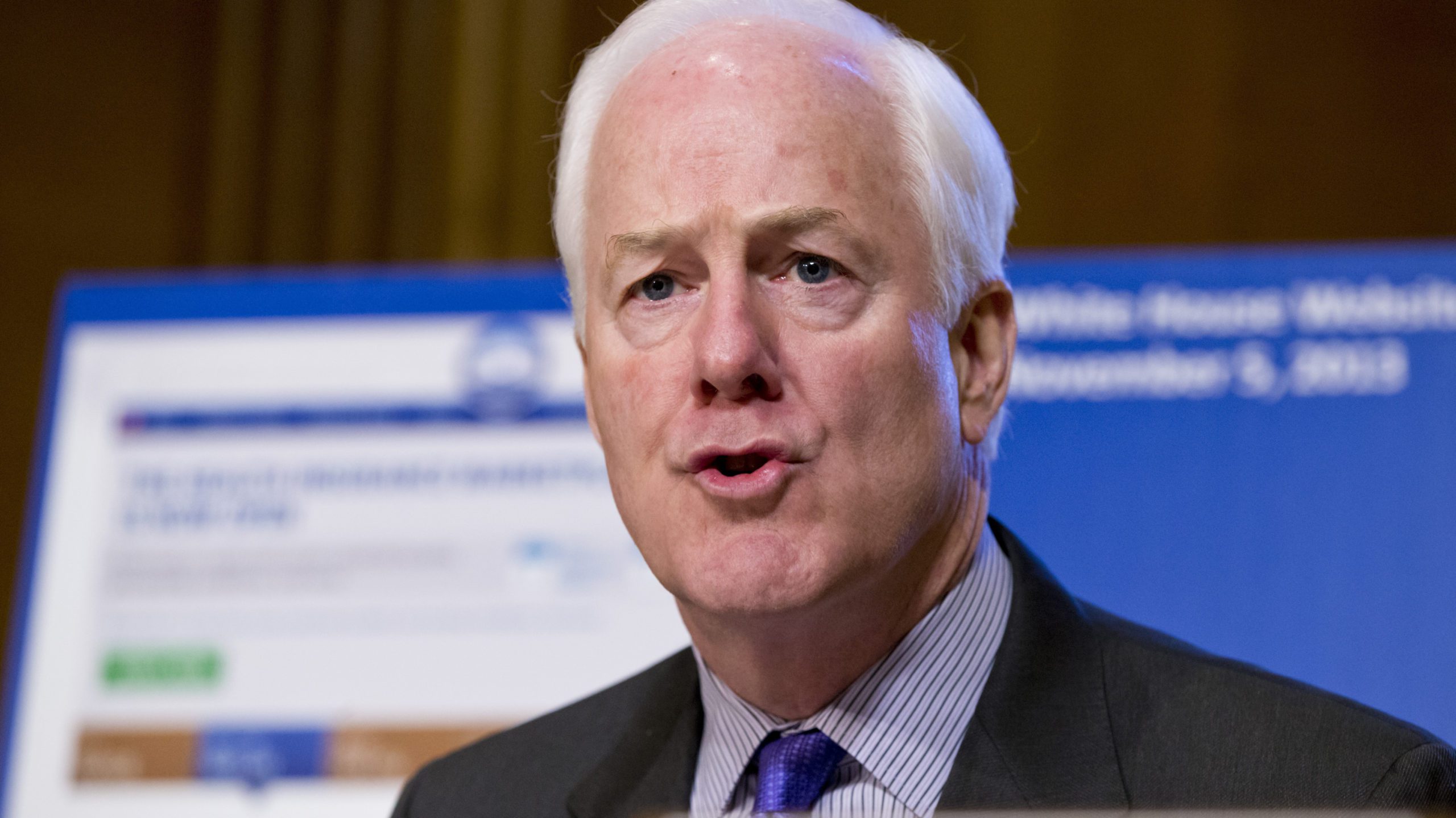On Tuesday, Senator John Cornyn (R-Texas) held a roundtable discussion at the University of North Texas (UNT) Health Science Center in Fort Worth.
The topic was legislation that Sen. Cornyn plans to introduce to bolster the Justice For All Reauthorization Act, initially passed unanimously in 2016. The act was intended to strengthen crime victims’ rights, reduce the nationwide rape kit backlog, provide more forensic labs resources, and improve post-conviction DNA testing access.
After the bill was signed into law by Former President Obama, Sen. Cornyn and U.S. Senator Patrick Leahy (D-VT) released a joint statement in December of 2016.
“Although there is more to be done, the Justice for All Reauthorization Act takes important steps to even the scales of our justice system. This criminal justice reform law will improve our indigent defense system, ensure access to post-conviction DNA testing, and make sure that the rights of crime victims, including survivors of sexual assault, are protected,” Sen. Leahy said in the release.
He continued, “I thank Senator Cornyn for working with me and bipartisan leaders in the House for supporting our legislation. As we consider legislation next Congress, we must remember that we have a continuing obligation to look out for all victims and to create fairness in our criminal justice system.”
“This is how Congress is supposed to work—in a bipartisan way, on behalf of the most vulnerable in our society,” Cornyn added.
The 2022 version of the bill that Cornyn will introduce is an attempt to further strengthen victims’ rights, calling for improved access to victim resources and eliminating the statute of limitations for victims of child sexual abuse. It also calls for more funding for forensic science services nationwide, as well as aims to fund conviction integrity units at prosecutor offices to examine possible wrongful convictions.
“We are reauthorizing an existing law, but we are improving and expanding its coverage as well,” Cornyn said.
Present at the event were Fort Worth city officials, including Mayor Mattie Parker, Health Science Center members, and law enforcement members. Also included in the roundtable discussion was a survivor of sexual assault and someone who had been exonerated after a wrongful conviction.
Lavinia Masters was the sexual assault survivor who spoke to attendees. She described being attacked at just thirteen years of age when someone broke into her family’s West Dallas home in 1985 and assaulted her at knifepoint.
Masters, now an advocate for other sexual assault survivors, said she went to a hospital and underwent an examination and a rape kit. However, due to backlogs and poor funding in Dallas County, her kit went untested for more than twenty years, past the statute of limitations.
More than twenty years later, technology allowed for the testing of the decades-old DNA samples collected by investigators in Masters’ case. The perpetrator was identified as a serial rapist already in prison for multiple other attacks.
Masters said that if more funding were available to test rape kits, “I probably would have been able to convict my rapist.” She added that she hopes this legislation will help prevent other victims from “hanging in the balance,” as she did.
Michael Ward, the forensic science division manager at the Fort Worth Police Crime Laboratory, said that Fort Worth currently has around 200 cases awaiting DNA testing.
“It is unacceptable,” Masters said. “Money should not be an excuse. We find money for everything else in the United States of America; we should find money for our victims who are suffering.”
Cornyn added that DNA testing has only become “more powerful” as technology improves. He pointed out that rape kit results often lead to identifying assailants who are serial offenders and help close numerous cases.
“There is a bigger and an important law-enforcement purpose for testing each and every one of the kits to the full extent we can,” he said.
UNT System Chancellor Michael Williams said that if the legislation passes, it will expand resources for the Health Science Center’s forensics team.
In 2021, UNT’s Center for Human Identification was able to test an average of 44.5 DNA samples per analyst each month. The Center completed 1,043 sexual assault cases, meaning testing was conducted, and a resultant report was turned in to law enforcement.
The reauthorization of the legislation would provide $2.5 million to the State of Texas for DNA analysis of rape kits through August 30, 2022, the same amount that the previous iteration of the act allocated to Texas the year before.
Cornyn also emphasized that the bill will be vital to solving crimes and helping exonerate those wrongly convicted.
Johnny Pinchback was the exoneree who spoke. Pinchback was sentenced to 99 years in prison after being convicted of raping two teenage girls in 1984.
The primary evidence against Pinchback was the teenager’s identification of him as the perpetrator, both to police and during the trial.
Eventually, after Pinchback served twenty-seven years behind bars, a Dallas crime lab used the latest technology available to test the DNA in his case and prove his innocence.
Research by The Innocence Project found that nearly 70% of those wrongfully jailed were convicted due to eyewitness misidentification.
Pinchback said one of the biggest roadblocks in his quest for justice was the court’s refusal to approve further DNA testing in his case.
“The problem is with the prosecutors and the judges that won’t sign off on this, to release people still locked away,” Pinchback said.
Pinchback was asked what advice he would give others who are still behind bars for crimes they did not commit. “Be patient. Help is on the way,” he said.






